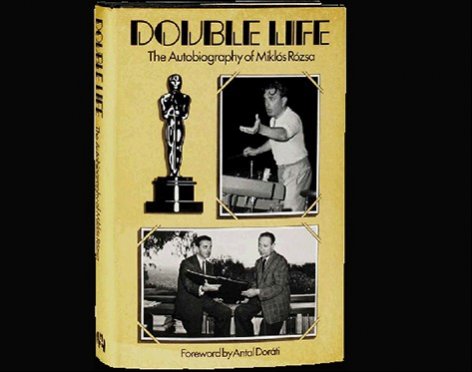Gala Concert on the Feast Day of Pécs
Gratitude for the Community
Karl Goldmark: Symphony No.2 in E flat major
This year's Gala Concert on the Feast Day of the City of Pécs will feature two large-scale, rarely performed pieces by two Hungarian-born composers. Miklós Rózsa, originally from Budapest, thanked his fame in the US to his hundreds of movie soundtracks and three Oscars. Still, it is a lesser-known fact that he also composed classical concert works, such as his late composition, the Viola Concerto, also to be performed at this gala concert. The night's other composer is Károly Goldmark, who achieved his most significant acclaim in Vienna. Those who know him tend to listen mainly to his operas, although, in his own day, many of his other pieces enjoyed great popularity as well. In his Symphony No. 2, we can feel what it was like to be a famous and well-versed composer and live in the colourful, romantic and dignified world of the Austro-Hungarian Empire.
We would kindly like to draw your attention to the English-language website of the Miklós Rózsa Society, which you can access by clicking here. The society aims to maintain Rózsa's legacy and memory in his new homeland, the US, and to track his works performed worldwide in a programme calendar.
Here, we would like to give a brief description of Miklós Rózsa's incredible career and life: He was born in Budapest in 1907 and died in Los Angeles, California, in his chosen new home in 1995. The world commemorates him as a triple Oscar-winning composer. He is well-known for nearly a hundred movie scores but was also committed to classical music all his life. He collected his three Academy Awards: in 1945 for his score for Hitchcock's Spellbound, again in 1947 for George Cukor's A Double Life, and for a third time in 1959 for Ben-Hur by Sam Zimbalist. Besides his worldwide celebrated film scores, he also composed symphonic works, violin, piano and cello concertos, chamber music, piano and choral pieces.
Rózsa was born in a Jewish family. He initially wanted to pursue a career in chemical engineering and went to university in Leipzig but also conducted higher music studies. Having earned two degrees, he left for Paris and then for London in 1935, where he worked as the artistic director of a dance company. He wrote his first movie score in 1936 for Jacques Feyder’s Knight Without Armour produced by the Hungarian Sir Alexander Korda. Rózsa settled down in Hollywood in 1940, and soon he was considered one of the most acknowledged soundtrack composers both in Hollywood and worldwide.
Rózsa’s melodious music served a large variety of film productions ranging from Hitchcock’s tensed thrillers to the solemn pomp of immense-scale supermovies or the painful sorrow of serious melodramas or a profoundly lyrical beauty emerging from a pool of reason (Providence) in a masterful orchestration. His colourful diversity was most apparent perhaps in Fritz Lang’s Moonfleet. It is a unique feature both in the history of the film and in music that the director Billy Wilder was inspired in The Private Life of Sherlock Holmes by Miklós Rózsa’s Violin Concerto in 1970, not originally meant as a film score at all. Rózsa’s movie score of Spellbound prompted the renowned soundtrack composer, Jerry Goldsmith, to start to make music. In fact, for a while, Rózsa was giving Goldsmith lessons at university.
George Cukor directed the movie A Double Life in 1947. Ronald Colman received a Golden Globe and an Oscar for Best Actor in 1948, and Miklós Rózsa won the Oscar for Best Original Music Score (in the category of drama or comedy).
Rózsa’s autobiography was published under the same title as the above-mentioned film. The photo is taken from the website of the Miklós Rózsa Society. We thank the society for their interest in our concert and for making publicity for it on their website.

The Hungarian-Austrian composer, violinist and music educator Károly Goldmark or, as German speakers would call him, Karl/Carl Goldmark, was born in Keszthely in the family of a poor church choirmaster. He began taking music lessons from one of his father's colleagues, a singer. He would take violin lessons and continued his studies in Sopron and Vienna. His studies were sponsored fully by his half-brother, József Goldmark, who was studying to be a chemical engineer in the Austrian capital. Due to financial difficulties, he was still forced to stop pursuing his studies, so he would self-train himself for a long period until he gained admission to the conservatory in Vienna. During the Revolution and Civil War in 1848/49, he was in Sopron and Győr, working as a theatre musician. After his debut in Pest, he celebrated his breakthrough also in Vienna. He held his first "composer's night" in Vienna in 1857, then two years later in Pest. He enjoyed a growing reputation, especially in the Austrian capital, where he settled permanently. Between 1865 and 1871, he wrote the greatest masterpiece of his career, Die Köngigen von Saba (The Queen of Sheba), which premiered in Vienna in 1875. This opera brought him worldwide acclaim and was staged not only in Pest but in several other European cities. His creativity focussed on operas from then on.
His great oeuvre was also discovered by the Bavarian Radio Symphony Orchestra, and a two-day conference took place in his honour in Vienna in November 2014.

7622 Pécs,
Breuer Marcell sétány 4.
jegypenztar@pfz.hu
+36-72-500-300
Opening hours:
Mon–Thu: 10.00–6.00 pm
Fri: 10.00–6.00 pm
Sa–Su: only on performance days, open from 90 minutes before the performance start time

7622 Pécs,
Breuer Marcell sétány 4.